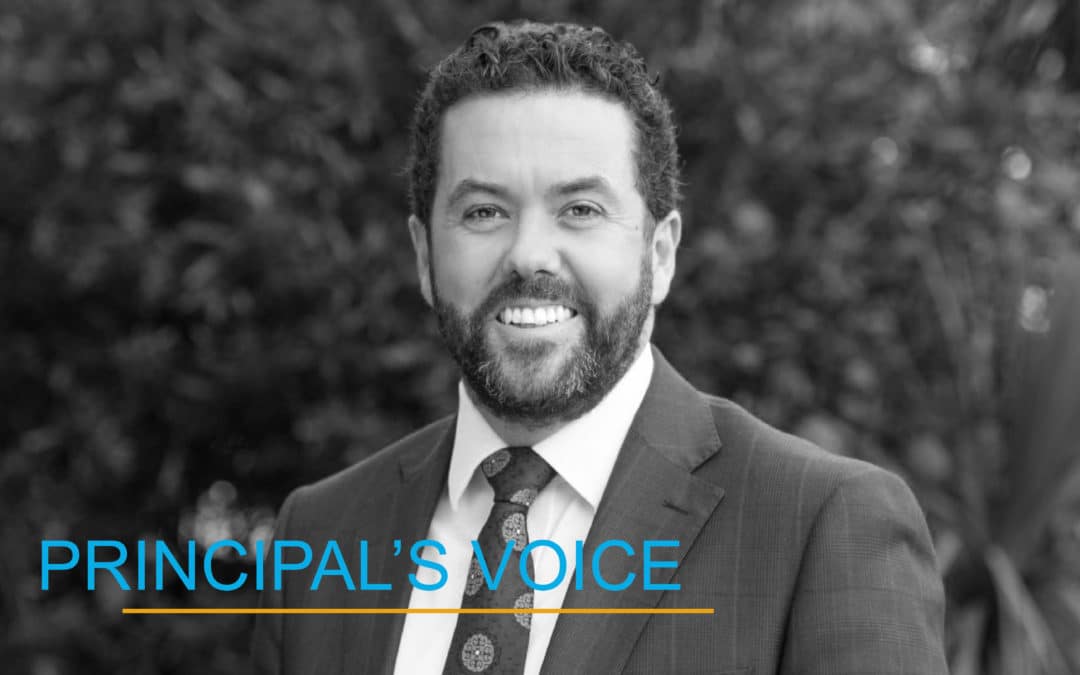I have made a career from believing in students more than they have believed in themselves. I encourage others to do the same. It helps students to see the world, and their place in it, in a different light. Their world grows. They understand that they are agents in their own story. No longer is life something that happens around them, it is something in which they are a crucial part, something which they are able to shape.
The story of education is one of change. The paradox of education is that we prepare students for change by understanding what doesn’t change.
How is education about change? Wander through the playground on any given day and look at the boys and girls in Kindergarten, sit in their room, listen to their questions, read them a story. Now do the same thing but with students in Year 12. The change is physical, social, emotional, relational, and cognitive. It is obvious.
But what doesn’t change? The need for character doesn’t change, neither does the need for integrity, the need for purpose, the need for human interactions, for relationship. People often talk about soft skills, which is funny because they are the trickiest ones, the ones that are hard to master. Communication, integrity, responsibility, problem-solving, flexibility, collaboration and self-motivation. What can be doubly difficult is that these skills are often best taught embedded in other material, not incidentally or accidentally, but intentionally albeit sometimes tangentially.
As we work together to open an array of opportunities for our students, it is vital we help them navigate change from a stable base. To this end, we aim to be clear and consistent in our expectations. We aim to have high expectations for our students, we aim to create a world of certain boundaries within which they can grow, develop and change.
We (families, students and the school) are playing the long game. Not for us the short game. The short game puts today before tomorrow, the short game puts off what seems hard, to do things that seem easy and fun. The long game, on the other hand, means paying a small price today to make tomorrow easier.
As we think about our lives, it is worth considering where we should play the long game. Perhaps the best places to start are those areas where the benefits compound: education, relationships, parenting and investing. My suspicion is that we know the worth of compounding on our finances. We are perhaps not as thoughtful about its benefits in our parenting or relationships.
With respect to education and the benefits of compounding, that’s our specialty. Every day, we work with our students, doing what seems hard today, to build capacity for tomorrow. Who they are matters, who they will become matters even more.
And what does the Lord require of you? To act justly and to love mercy and to walk humbly with your God. – Micah 6:8
Tim Watson
Principal





